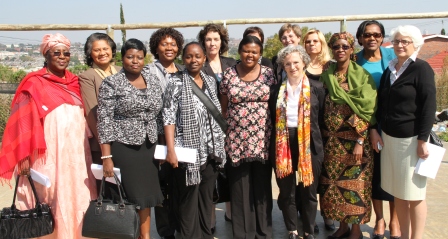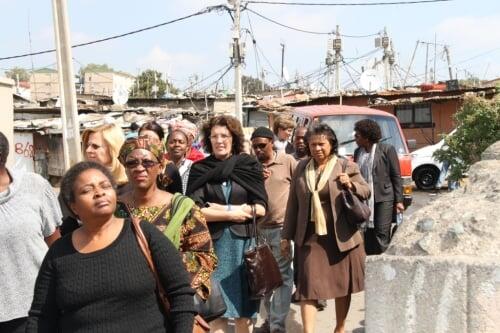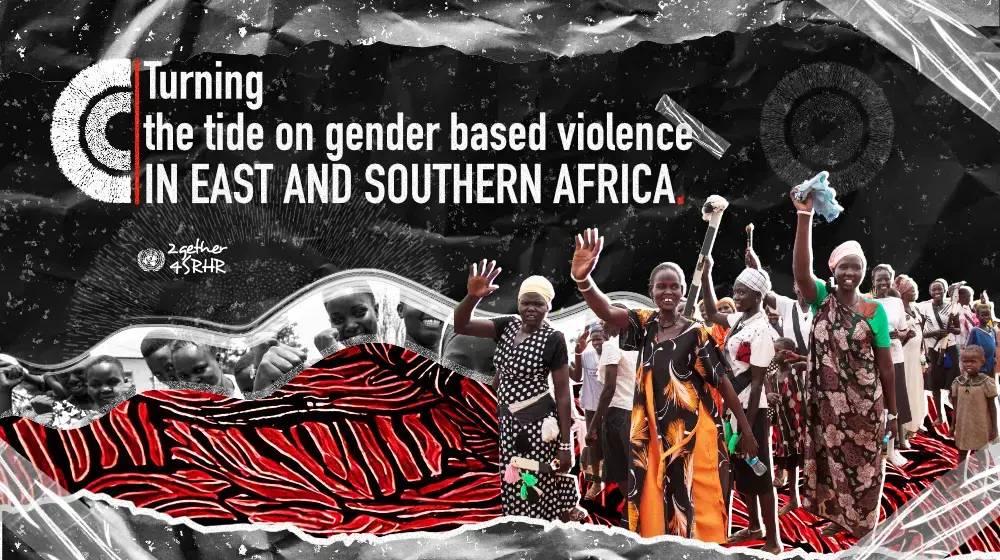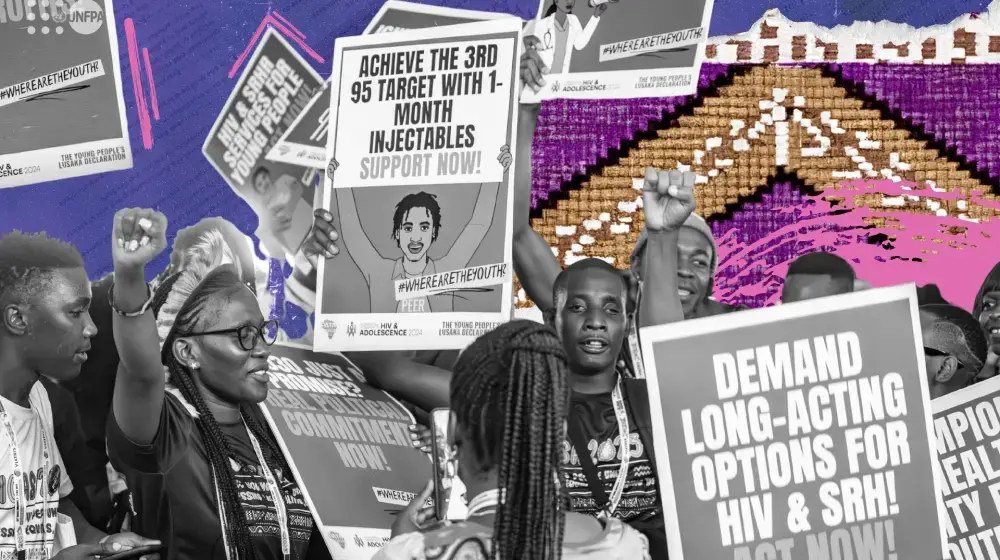More than half a dozen foreign ambassadors made their way up the gravel driveway of the Ratang Bana (Love the Children) Foundation in Alexandra township in Johannesburg, South Africa. The convoy was to visit the local Foundation to observe the work being done with orphans and vulnerable children.
What started out as a football club has now blossomed into a foundation dedicated to supporting the upliftment of vulnerable children, orphans and those infected and affected by HIV and AIDS. In addition to catering for vulnerable children, the Ratang Bana Foundation has set up measures to empower the local community with the tools to help vulnerable children and to help ensure that the food security of the children and the local community has been catered for through a food garden initiative. The key to the Foundation’s success has been the drive to get the vulnerable youngsters involved in their own upliftment through their active participation.
The ambassadors, joined by UNFPA Country Representative, Dr. Julitta Onabanjo, listened intently as founder and chair of Ratang Bana, Ingrid Moloi, explained what the centre does. Moloi was adamant that she would do what was necessary for her ‘children’, as she refers to the young people that come to the centre. “I never let anyone tell me that, as a woman, I cannot do what I set my mind to,” she told them.
Ratang Bana supports 469 young children at the facility, providing varying services from food through to education support.
After visiting the Foundation, the ambassadors made their way to the Leratong (Joy for One) Foundation. Leratong contributes to the reduction of child-headed households. It was established in 1990 by Peggy Chauke, with the aim of normalizing the lives of those who have been orphaned, abandoned or abused. The foundation provides education, safe shelter, food, and access to social workers, psychologists and medical care for the children dealing with trauma, illness and abuse.

Ms. Chauke said that when she first started Leratong, she was shocked at the sheer number of orphans. In her culture, she was used to ubuntu where relatives would take care of the children left behind. It was this failure on the part of families of the children that spurred her on to setting up Leratong, which now cares for about 250 children aged 3 to 18 years old, from indigent families.
According to the StatsSA Social Profile of Vulnerable People (2002-2010), there are 3.6 million orphaned children in South Africa, representing just under one fifth (19,6 per cent) of all children in South Africa. This is as a result of various causal factors, one of the most notable being HIV and AIDS. Many of these children are forced into early adulthood, contributing to the growing number of child-headed households in South Africa.




